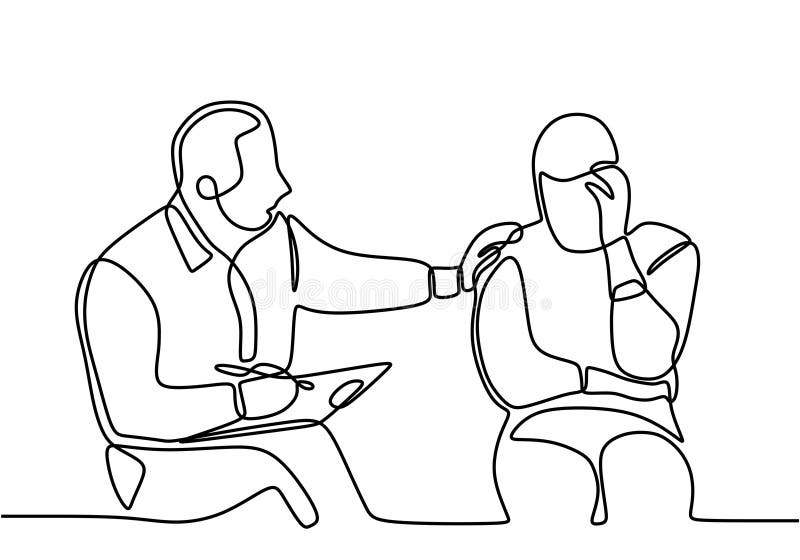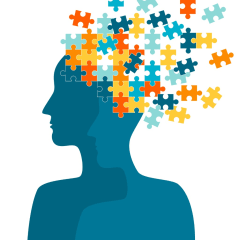Psych Treatment: A Comprehensive Guide to Methods and Outcomes

Cognitive-Behavioral Treatment
Cognitive-Behavioral Treatment (CBT) is an extensively utilized psychotherapeutic technique that concentrates on recognizing and modifying dysfunctional thinking and habits patterns. Established in the 1960s by Aaron T. Beck, CBT incorporates cognitive and behavioral concepts to deal with numerous mental health and wellness issues, including anxiety, anxiousness, and stress-related disorders. The facility of CBT is that maladaptive ideas add to psychological distress and maladaptive behaviors. By restructuring these thoughts, people can accomplish considerable improvements in their psychological wellness and day-to-day functioning.
Methods such as cognitive restructuring, exposure therapy, and skill-building workouts are typically employed. Cognitive restructuring entails difficult and altering adverse thought patterns, while direct exposure therapy aims to reduce anxiety and anxiety via gradual direct exposure to been afraid objects or circumstances.
Evidence-based study sustains the efficiency of CBT for a wide variety of mental conditions - Best Psychologist in Delhi. Its emphasis on skill procurement and self-help techniques encourages customers to proceed progression independently after treatment ends. The adaptability and performance of CBT have made it a cornerstone in modern psychotherapeutic method
Psychodynamic Techniques
Rooted in the early concepts of Sigmund Freud, psychodynamic techniques focus on exploring the subconscious mind and its influence on habits and feelings. These approaches intend to discover surprise ideas and feelings that might be driving maladaptive habits and emotional distress. Central to this technique is the concept of inner problem, typically coming from unresolved past experiences, specifically those from youth.
Therapists utilizing psychodynamic strategies employ several key approaches, consisting of complimentary association, where clients are urged to talk freely to expose unconscious material, and desire analysis, which interprets the unexposed material of dreams. Furthermore, the expedition of transfer and countertransference characteristics within the healing connection is vital. These interactions can supply understandings into the patient's inner world and relational patterns.
Psychodynamic therapy is commonly longer-term compared to various other techniques, offering a extensive and deep understanding of the individual's psyche. Study indicates that it can be especially efficient for complex mental health and wellness problems, such as personality problems and persistent depression. By cultivating self-awareness and emotional insight, psychodynamic treatment looks for to bring unconscious material to awareness, making it possible for individuals to attain meaningful and lasting adjustment in their lives.
Humanistic Strategies
Building on the structures laid by psychodynamic strategies, humanistic methods use a distinctive viewpoint focused on individual possible and self-actualization. Originating in the mid-20th century, these techniques prioritize the fundamental benefits and development potential of individuals, stressing an all natural sight of human experience. Secret numbers such as Carl Rogers and Abraham Maslow have considerably affected this healing strategy, which incorporates methods like client-centered therapy and Gestalt treatment.
Client-centered treatment, established by Rogers, plays a pivotal duty in humanistic strategies. It depends on the specialist giving a setting of genuine positive respect, empathy, and harmony. This promotes a safe room for clients to discover their sensations and experiences without judgment, assisting in self-discovery and individual development. The specialist's duty is more of a facilitator than an authority, motivating customers to harness their internal sources for recovery.
Gestalt therapy, an additional crucial humanistic strategy, emphasizes existing moment understanding and the assimilation of mind and body. By concentrating on the "here and now," clients obtain higher insight right into their existing emotions and behaviors. Techniques such as role-playing and guided visualization are commonly used to aid clients acquire a deeper understanding of themselves, inevitably causing enhanced self-awareness and fulfillment.
Integrative Therapies
Integrative therapies stand for a synthesis of numerous therapeutic techniques customized to satisfy the unique needs of each customer. This approach acknowledges the intricacy of human psychology and the multifaceted nature of psychological wellness problems. By combining components from different schools of psychotherapy-- such as cognitive-behavioral therapy (CBT), psychodynamic therapy, and humanistic strategies-- integrative treatments supply a more versatile and holistic therapy paradigm.
Professionals of integrative treatment assess each client's details requirements, symptoms, and individual history to devise a personalized therapy strategy. This personalized technique enhances the possibility for healing success by resolving the root creates of mental distress and advertising overall well-being. Methods may this website consist of mindfulness exercises, cognitive restructuring, and psychological processing, each chosen to target different aspects of the customer's concerns.
Furthermore, find here integrative therapies stress the restorative connection, viewing the client-therapist bond as a critical element of effective therapy. This connection cultivates an encouraging setting where customers feel risk-free to discover and address their worries. The adaptability of integrative treatments makes them suitable for a broad array of problems, including anxiousness, depression, trauma, and interpersonal difficulties, consequently boosting their applicability and efficiency in varied clinical setups.

Measuring Treatment Outcomes
Examining the performance of psychotherapy is crucial for both customers and medical professionals to make certain that the therapy is generating the desired end results. To achieve this, various techniques and devices are used to gauge treatment outcomes systematically. Standardized assessment instruments, such as the Beck Anxiety Stock (BDI) and the Generalized Stress And Anxiety Problem 7 (GAD-7), provide measurable data on sign intensity and modifications gradually.
In addition to standardized devices, qualitative methods like client self-reports and scientific meetings use beneficial understandings into the personal experiences and regarded progression of clients. Routinely set up evaluations, typically at the start, midpoint, and end of therapy, help in tracking the trajectory of enhancement or identifying locations needing adjustment.
Result measurement is not limited to sign decrease; it additionally encompasses practical enhancements in life, such as better interpersonal connections, increased job performance, and improved total health. Modern innovations in digital health and wellness have presented mobile applications and online systems that facilitate real-time surveillance and responses, better refining the assessment procedure.
Ultimately, an extensive method to gauging therapy results ensures that healing treatments work, effective, and tailored to meet the specific needs of customers, thereby optimizing the general restorative experience.
Verdict
Humanistic strategies concentrate on personal growth and self-actualization, while integrative therapies incorporate multiple approaches for customized treatment strategies. Examining treatment end results via standardized assessments and qualitative techniques makes certain a thorough understanding of efficiency, ultimately directing customers towards enduring mental health enhancements.
From the structured technique of Cognitive-Behavioral Therapy (CBT) to the deep expedition of the subconscious in psychodynamic therapy, each technique brings unique benefits. Its emphasis on skill purchase and self-help techniques equips clients to continue progress separately after therapy wraps up (Best Psychologist in Delhi). Secret numbers such as Carl Rogers and Abraham Maslow have actually dramatically affected this therapeutic method, which includes approaches like client-centered therapy and Gestalt treatment
